Over the past few days, participants have gotten settled in to the second half of their Discover AMIGOS experience: the community stay!
As part of this experience, volunteers live with local host families and spend their days planning and leading activities with children at the local school as well as helping support an initiative that the school is working on.
One of the central components of the unique AMIGOS model for community and youth leadership development is the Community-Based Initiative Process, or CBIP. Through the CBIP, participants work together with local leaders and community members to plan and implement all the stages of a community decided and guided project. The CBIP is a tremendously important part of what it means to be part of AMIGOS and in Discover, we introduce participants to this fundamental tenet of AMIGOS Programs.
Discover staff spend the weeks leading up to the project working together with local leaders and community members to decide on a project they would like to work on and then finish all of the planning for the project together. The goal is for the project to be fully planned and ready for implementation as soon as participants arrive in community. The volunteers are then ready to begin helping support in the implementation stage of the project, most often by providing their time, energy, labor, and willingness to learn and support where needed.
Our goal is for participants in the Discover Program to get experience being part of a CBIP in order to become the next generation of leaders facilitating an entire Community-Based Initiative Process on their own through their future participation in AMIGOS’ Summer or Gap Programs.
For Session B, we are working closely with local elementary schools and it has been the teachers, principal, and parents of students who have decided on the project that their school can most benefit from.
In La Negrita, they are constructing a bathroom for the kindergarten class. In Rincón de las Palmas, they are creating a large garden in which they will be able to grow fresh fruits and vegetables to serve their students at lunch. In El Barrero, they have recently received a new school teacher, meaning instead of having 1 pre-school teacher and 1 first-sixth grade teacher, they will have three teachers. However, they need a new classroom space in order to accommodate the new teacher and split the classes up. Their CBIP includes laying down flooring in the new classroom space, fixing up a broken door, installing ceiling fans in the classrooms that do not have any fans, and creating a small vegetable garden.
As you can see in the photos below, the participants have jumped at the opportunity to help support in whatever way they can.
Rincón de las Palmas: KiKi, Rachel, Alice, Hannah, Lexi, Avery, Ruby, and Larissa
The girls have been hard at work preparing the land for the large garden. This has included digging and building trenches in order to drain rainwater.
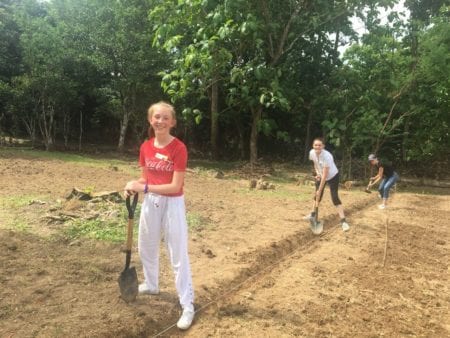
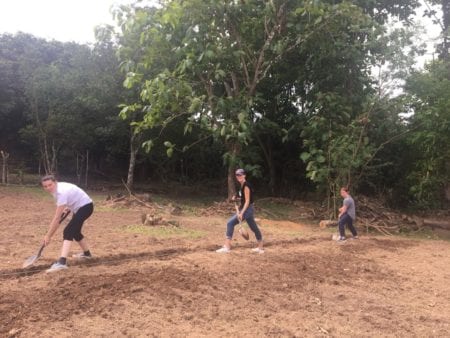
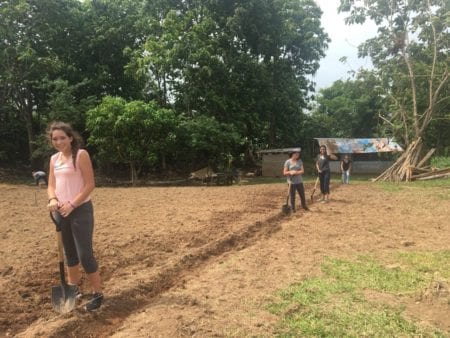
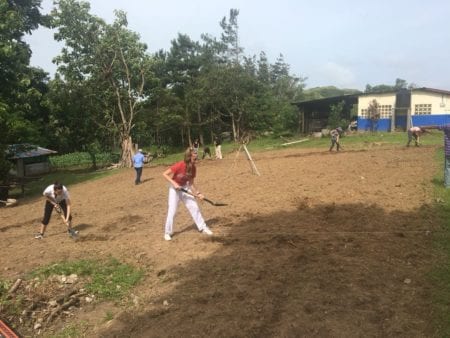
La Negrita: Orlando, Kaitlin, Madeline, Carmina , Kaitlyn, Darwin, Carus, Andreas, and Francesca.
The participants in La Negrita have been working to help the builders construct the bathroom. While the participants do not have the skills or knowledge to construct any sort of structure themselves, what they do have is the energy and willingness to jump in to help create the many, many pounds of cement that the builders need.
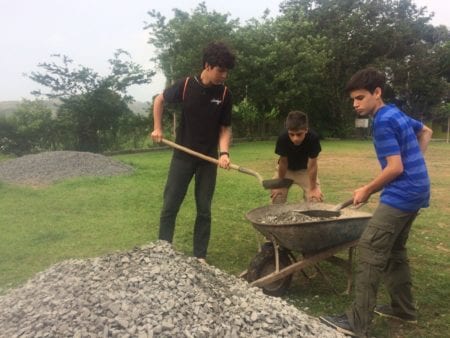
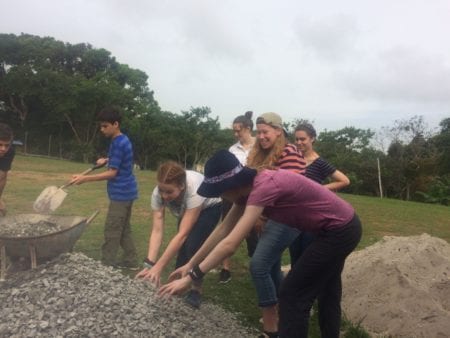
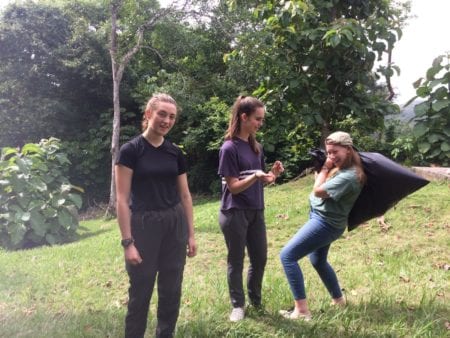
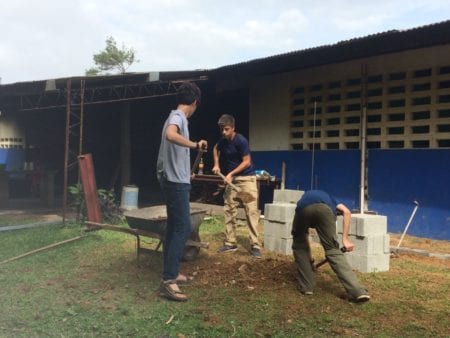
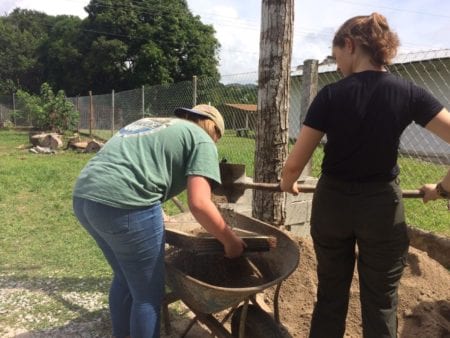
El Barrero: Nikhil, Sloan, Cohen, Njusha, Robby, Sanjana, Abby, and Aidan
In El Barrero, participants have been working hard to prepare the land for the garden at the school. While there are a lot of mini projects the school is working on, many of these tasks are better completed by professionals. For this reason, the participants have been getting familiar with using shovels and garden hoes as their labor really contributes to creating the garden.
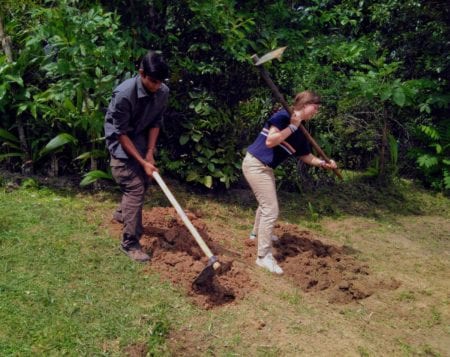
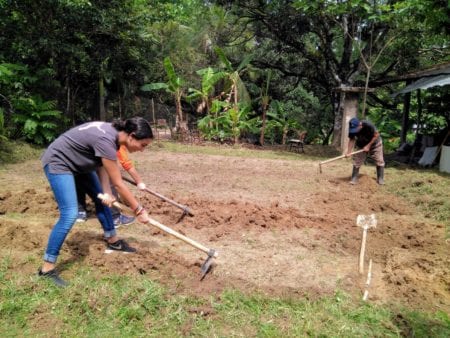
In addition, the community in El Barrero had expressed interest in having the participants lead a community clean-up. For an entire morning, participants, alongside local youth volunteers, walked through the paths that enter the community and picked up litter. Afterwards, participants worked together to paint signs that were provided by the community’s Committee for Local Development that shared environmentally friendly messages on them to then place around the community.
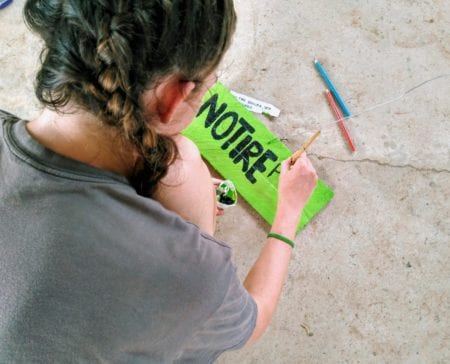
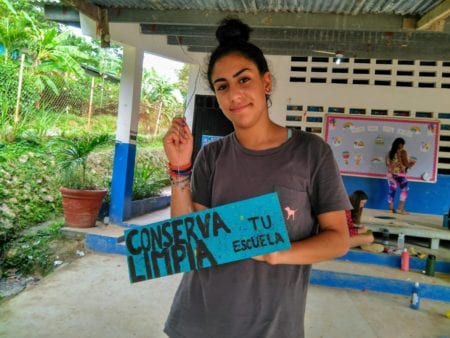
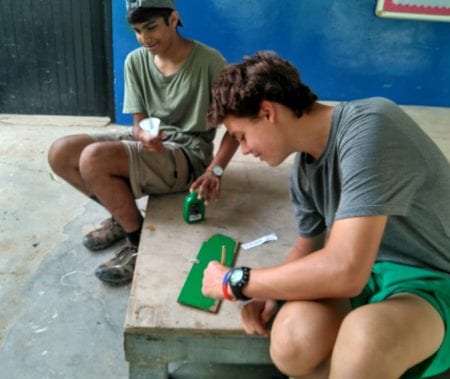
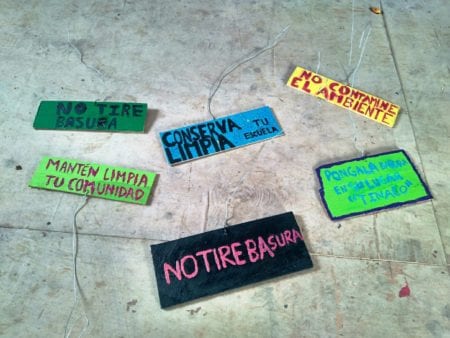
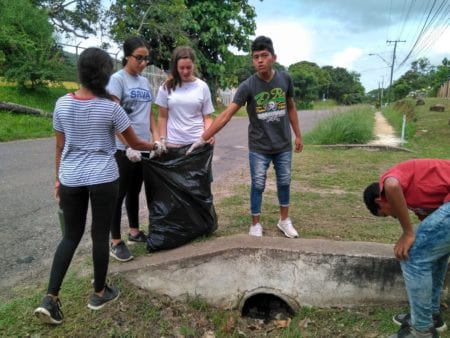
While working hours in the hot sun can be a real challenge, Session B participants are doing much more than donating hours of their time and labor to making these school projects happen. Through their time in Isla Cañas and in community, our volunteers are learning valuable lessons about community and working together to bridge our perceived differences. In the process, these young people are achieving greater understanding of themselves, of others, and of their important role in bettering this messy, beautiful world.

